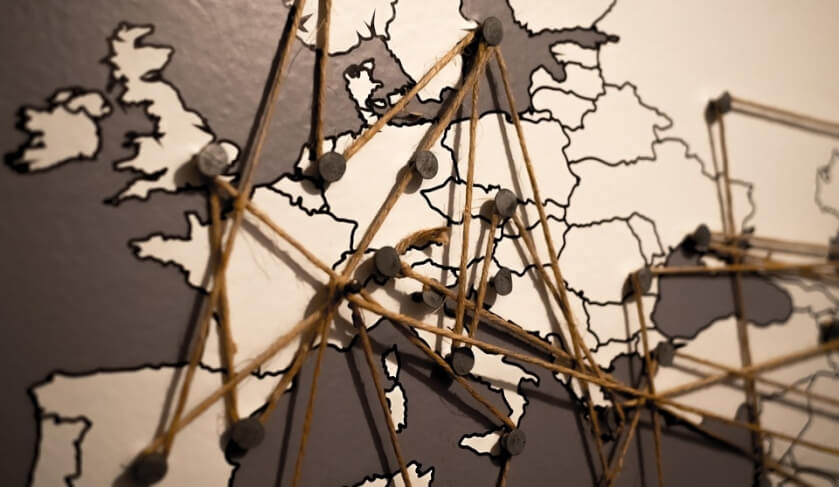Following years of uncertainty in the Middle East and North Africa, Lebanon has emerged as the most recent country to succumb to the contagion of political violence and economic catastrophe.
To continue reading the rest of this article, please log in.
Create free account to get unlimited news articles and more!
Intellectuals, artists and social activists were a mainstay of Beirut’s world-famous café scene. Debating about the future of the region, the country’s relationship with France and the West as well as Lebanon’s relationship with the greater Arab world – Beirut was long a hotbed of social engagement and learning, which combined with the city’s opulence and culture earned it the title of Paris of the Middle East.
Though, over recent decades the Paris of the Middle East appears to many as a distant memory. A civil war that left over 100,000 people dead, as well as foreign occupation and the growth of paramilitaries has eroded Lebanon’s magnificence.
Now, the country faces its greatest economic and political challenge since independence.
According to a World Bank report released in late May, Lebanon’s current crisis may rank among the world’s top three worst economic crises since 1857. Indeed, between 2018 and 2020, Lebanon’s GDP per capita had declined some 40 per cent, with GDP falling from US$55 billion to approximately US$33 billion. Since 2019, the Lebanese pound also lost 95 per cent of its purchasing power, spelling disaster for the country’s import market.
Anchal Vohra in April writing for Foreign Policy penned an article titled 'Nobody Knows What Lebanon’s Currency Is Worth Anymore'. Apt.
The recent calamities stem from myriad roots. First is the wave of anti-government protests that began in 2019 and sparked numerous government resignations including Prime Minister Saad Hariri for a brief time, the second being the COVID pandemic and of course the Beirut explosion.
Though years of maladministration and government corruption had sowed the seeds of economic deprivation long before 2019. Indeed, Lebanon’s Daily Star warned in 2018 that unemployment was already at 46 per cent. Perhaps the crisis could have occurred regardless of the widespread protests, COVID and the Beirut explosion.
What is likely to occur is one of the greatest humanitarian disasters of the 21st century. Hyperinflation is hurting all facets of Lebanese society. Not only has the devaluation of the Lebanese pound hurt the poor, but businesses across the country have shut their doors. Some parts of the country only have electricity for two hours a day due to fuel shortages, while motorists line up for hours to access fuel reserves. Medicine shortages have left many ill, and food shortages have prompted the Israeli Defence Minister to tweet: “As an Israeli, as a Jew and as a human being, my heart aches seeing the images of people going hungry on the streets of Lebanon.”
All in all, this prompted the United Nations to estimate that 1.5 million Lebanese and an additional 400,000 migrants will need aid over the coming eight months.
This crisis also serves as an incredible security threat to the region.
According to Vohra in Al Jazeera this week, the Lebanese military can no longer afford to support its 80,000 personnel. While most of those serving in the Lebanese armed forces typically earned some $800 a month prior to the recent crisis, they now only receive up to $90 per month.
Vohra quotes former Lebanese General Elias Farhat, who argued, “What we need is cash. If a soldier earns 70 or 80 or 90 dollars then what would be his morals? If you can add $100-$200 to his salary so he can at least survive, then it would be much better. We have about 80,000 plus soldiers in the army and they are all nearly broke. They need at least $100 for a soldier a month in cash aid.”
This was exemplified by Lebanese analyst Sami Nader, who Vohra quotes as saying: “With just $2-$3 that they earn a day, the soldiers are unable to cover transportation costs. How are they expected to guard the borders and keep the peace within?
“All the ingredients of civil strife are there. If we don’t have a functioning army it will be total chaos.”
Seldom in Lebanon’s history has the Lebanese military played a more critical role in protecting the nation’s interests.
Much of Lebanon’s south is managed under a shadow government. Protected and overseen by Hezbollah, the armed group operates hospitals, policing services and amid the energy crisis has even ramped up its energy facilities. Hezbollah’s shadow government is extreme Shia and explicitly loyal to Iran, and by these virtues is antithetical to Lebanon’s multiconfessional foundation. Indeed, with Hezbollah’s battle-hardened paramilitary following the Syrian civil war as well as ongoing popularity among the country’s Shia population, a weakened Lebanese military will pave the pathway for ongoing Hezbollah expansion throughout the rest of the country.
Further, the Lebanese military has played a critical role in protecting Lebanese and moderate interests amid regional Sunni insurgencies, not least ISIS and al-Nusra.
Simply, Lebanon’s economic woes threaten to destabilise the Levant after years of ongoing uncertainty. It would threaten and uproot western interests in the region to have a weakened Lebanese armed forces, with mass desertions providing a green light for both Iranian-backed proxies such as Hezbollah as well as Sunni extremist groups such as al-Nusra to exert their foothold in a country which was once regarded as the Paris of the Middle East.
Get involved with the discussion and let us know your thoughts on Australia's future role and position in the Indo-Pacific region and what you would like to see from Australia's political leaders in terms of partisan and bipartisan agenda setting in the comments section below, or get in touch with

 Login
Login







